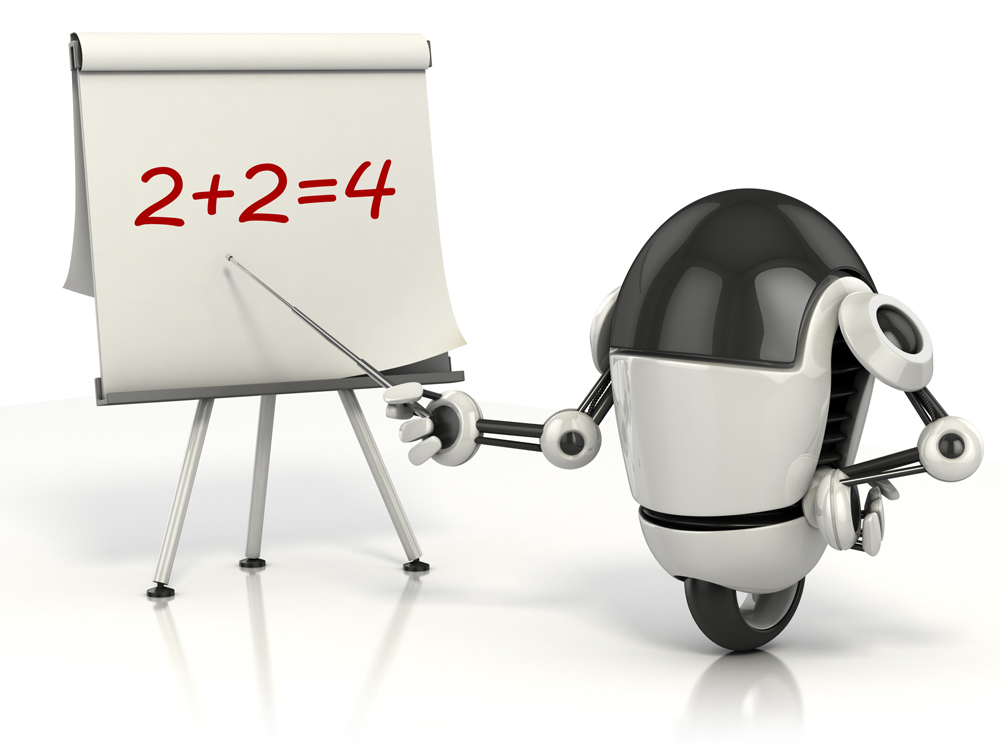Story Highlights
- Jill Watson, a bot, was used as a teaching assistant at Georgia Tech, and students never realised she's not human
- Automating rule-based and routine tasks like grading of tests and assignments can help reduce tedium for teachers
- We still need human teachers to mentor students, to promote high thinking and to provide the human touch
In January this year, Jill Watson joined the Georgia Institute of Technology US as a teaching assistant (TA) to help MSc (computer science) students with their design projects. Her job was to reply to their (thousands of) questions. She was prompt, responded quickly to questions over email, and posted regularly on online fora.
She had an easy manner — often responding with a brief “yep” or welcoming suggestions with a “we’d love to”. The students described her as sharp, impersonal and prompt to respond. Some, however, got suspicious about her super-swift responses and looked her up on LinkedIn and Facebook. They couldn’t find her profile.
Jill Watson was a teaching bot created by the IBM Watson team and trained by the team of researchers at Georgia Tech. The students described Jill as sharp, impersonal and prompt to respond
That’s because Jill was not human (her creators didn’t think of creating social profiles for her). She was a bot created by the IBM Watson team and trained by the team of researchers at Georgia Tech. This was disclosed to the students only in April end.
The students were so impressed by her that some want to learn about new developments with Jill after the class ends, while others launched an open-source project to replicate her.
Jill is supposed to return with a different name next semester.
Taking the tedium out of teaching
Georgia Tech’s implementation of an artificial intelligence (AI) teaching assistant raises the question: Could robotic assistants become the norm on college campuses in a few years? If these students (who were studying AI) couldn’t make figure out that Jill was a bot and not a human, can we really claim that humans make better teachers?
While I don’t see AI replacing teachers anytime soon, it can certainly be used to enable students and teachers to get more out of the educational experience.

To begin with, automating rule-based and routine tasks — including grading of tests and assignments — can help improve productivity in the classroom. Such tasks tend to be tedious and time-consuming. Automating them would leave teachers free to focus on assisting students who are struggling, providing human interaction and hands-on experiences for them.
AI can be used effectively to respond to queries from students — a bot will be infinitely more patient than any teacher in repeating answers and examples
Let’s take my own example: I once taught at a B-School for five years. I loved teaching, but dreaded the thought of correcting 50 answer sheets each for the midterm and final exams; plus, it was exhausting to reply to the students’ never-ending queries. If only I’d had Jill assisting me in these onerous tasks, it would’ve taken the pain out of teaching for me (and I might have stuck around longer).
Let AI take care of the tedium. AI bots can be leveraged to correct homework and other assignments where the answers are largely differentiated.
AI can also be used effectively to respond to queries from students — a bot will be infinitely more patient than any teacher or teaching assistant in repeating answers and examples ad tedium. There are also some AI programmes that can be used (partly) for tutoring students in the fundamentals of mathematics, writing and other subjects.
However, human teachers will still be required to help students imbibe higher-order thinking and creativity.
Lessons tailored to students’ needs
Another key way in which AI could impact education is by enabling personalised learning through adaptive learning programmes, games, etc that respond to the specific needs of each student. This will help students understand topics and subjects they find difficult and allow them to learn at their own pace. Students of different levels will be able to study in one classroom with ease, with teachers providing help and support whenever required.
Bill Gates has invested about $240 million to accelerate work in the personalised learning space. The vision is to create lesson plans that are specific to each student.
AI is enabling personalised learning through adaptive learning programmes, games, etc that respond to the specific needs of each student
The AI engine offers suggestions based on past reading patterns and preferences of students, but we still need human teachers in classrooms for the things AI can’t do — coach and mentor students and give a little extra attention to the ones who need it; trigger the spirit of discovery in them; teach them humility and compassion; evoke higher thinking and enable them to connect the dots.
We will still humans to teach humans, but AI could sure help some along the way.
Abhijit Bhaduri is the author of ‘The Digital Tsunami’. The book that explores the change in careers and culture that is sweeping every industry. Join him on Twitter @AbhijitBhaduri.
Subscribe to FactorDaily
Our daily brief keeps thousands of readers ahead of the curve. More signals, less noise.
To get more stories like this on email, click here and subscribe to our daily brief.
Careernet is the sponsor of our Future of Jobs in India coverage and events. The coverage and the content of the event are editorially independent. For more on how we separate our newsroom and our business functions, read our code of conduct here.









